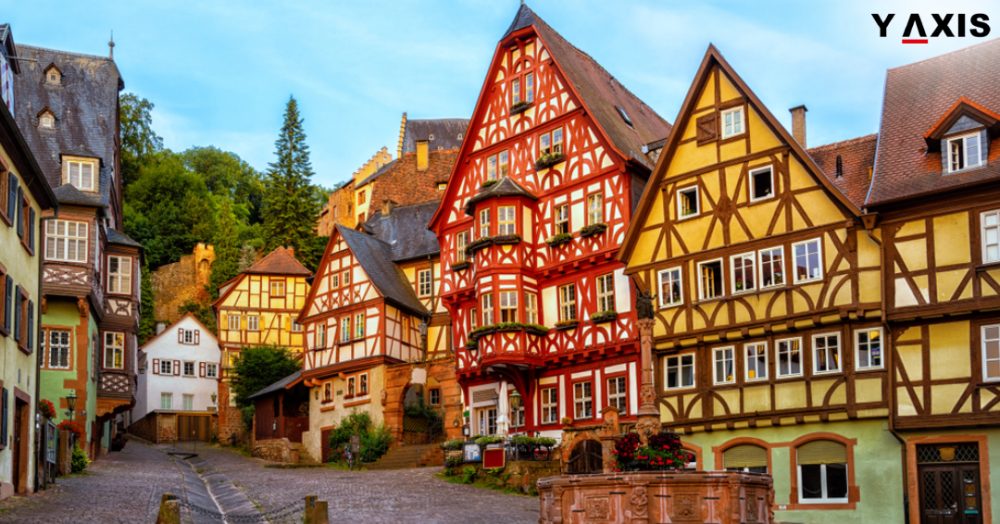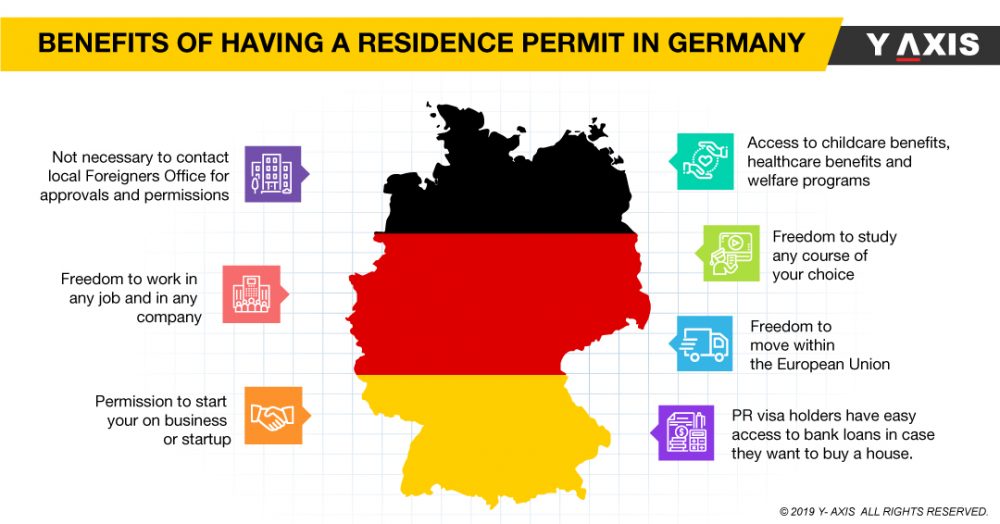
Getting a permanent residency in Germany means access to many benefits. A PR visa in Germany in 2020 will mean access to the same benefits.
There are two types of residence permits- limited (Aufenthaltserlaubnis) and unlimited (Niederlassungserlaubnis). The limited permit has a validity date and will expire after a few years. However, you can apply for an extension.
The unlimited residence permit allows you to live and work in Germany for an unrestricted period. However, to be eligible for permanent residency you need to fulfil certain eligibility conditions:
- Duration of stay:
You can apply for a permanent residence permit if you have been in Germany for five years or more. If you are working or studying in Germany with a legal residence permit, you can apply for your German PR visa.
- Income and professional qualification:
If you are a highly qualified worker with an annual income of over 84,000 Euros, you can apply for a PR immediately.
If you have the special technical knowledge or are involved in academic teaching or research, then you can get your PR visa.
- Knowledge of German language:
Knowledge of the German language is necessary to obtain PR. B1 level of German is required which will be quite easy if you have lived in the country for more than two years. Apart from this, you need to have some knowledge of German society such as its legal, social and political system.
- Contribution to pension insurance:
For making a PR application, you should have contributed to the statutory pension insurance of Germany. The duration of the contribution varies with the criteria you belong to. If you belong to the general category you should have contributed to the fund for at least 60 months.
If you have an EU Blue Card, you should have contributed to the fund for 33 months and if you are a graduate your contribution should be for 24 months.
Required documents for PR application:
When applying for permanent residency, you must submit the following documents:
- Passport and visa
- Your job offer letter with mention of income to prove you can support yourself and your family
- Proof of educational and professional qualifications
- Proof of accommodation
- Proof of having a health insurance
- Certificate proving you have B1 level knowledge of German language
- Certificate of your degree if you have studied in a German university
- Marriage certificate if you are married to a German citizen
- Letter from your employer/university
Once you submit your PR application, the processing usually takes 2 to 3 weeks.
What does a PR visa mean in 2020?
The benefits of having a PR visa are many.
- Once you get your PR visa, there is no need to contact the local Foreigners Office (Ausländerbehörde) for every approval or permission to changing your house or job to extending your visa.
- With a permanent resident permit, you can apply for any type of job or look for any kind of employment even though it may not be related to your studies. If you are in Germany on an ordinary visa or a jobseeker visa you will not be allowed to apply or take up a job unrelated to your profession.
- With a PR visa, you are eligible to start your own business or startup in Germany. The good news is that the German government is giving a lot of incentives to startups.
- With a PR visa, you are entitled to social benefits such as childcare benefits, healthcare benefits, and welfare benefits if you lose your job or are laid off.
- A PR visa holder gets the benefit of being able to study any course of his choice in a German university for which he can get a scholarship or financial aid if required.
- Freedom of movement within the EU countries is possible for PR visa countries. They require no visa to visit or work in any other European country under the EU.
- PR visa holders have easy access to bank loans in case they want to buy a house in Germany.

EU Blue Card:
The EU Blue Card is a residence permit that does not require a visa. With the EU Blue Card, you can live and work in Germany for four years before applying for a permanent residency. It has the same privileges as the German PR.
- You can move to another country in the EU after completing 18 months of stay in Germany
- Get a residence permit to other EU countries on certain conditions
- Get full access to work opportunities and social security schemes in the EU
German citizenship:
PR visa holders become eligible for German citizenship after completing 8 years of stay in Germany on a PR visa.
The Permanent Residency or residence permit of Germany provides many benefits. These benefits are expected to continue in 2020.



What does permanent residency mean in Germany in 2020?
Posted on December 19, 2019